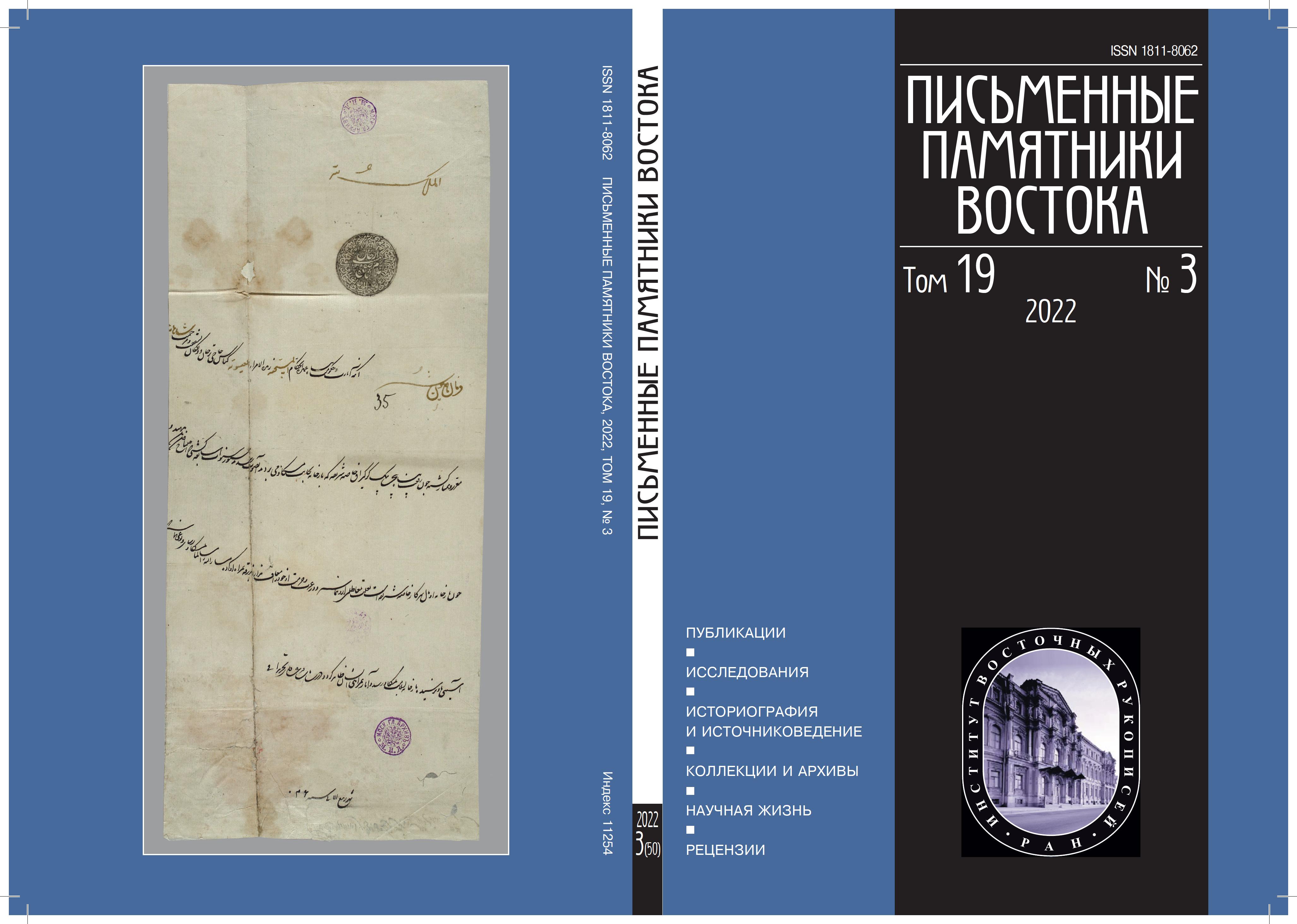Mādhyamikas’ Argumentation against the Concept of Motion
- Authors: Burmistrov S.L.1
-
Affiliations:
- Institute of Oriental Manuscripts RAS
- Issue: Vol 19, No 3 (2022)
- Pages: 25-37
- Section: Research works
- Published: 24.10.2022
- URL: https://journals.eco-vector.com/1811-8062/article/view/109679
- DOI: https://doi.org/10.55512/WMO109679
- ID: 109679
Cite item
Full Text
Abstract
The concept of motion in Madhyamaka is treated as empty, i.e. having no referent in reality, for any change including the change of position of an object in space is generated by unenlightened saṃsāric consciousness. The Mādhyamikas’ teaching on motion was compared by some scholars with the views of the ancient Greek philosophical school of Eleatics, who also treated motion as unthinkable. But, while the Eleatic school considered true being to be absolute rest, the Mādhyamikas considered the concept of rest to be as empty as that of motion, for it is correlated with the concept of motion and has no sense without it. According to Nāgārjuna’s argumentation and to his commentator Candrakīrti, motion exists nor in that part of space which has already been traversed neither in that part which has not yet been traversed, and the moving object itself is treated as a point having no spatial dimension and therefore devoid of internal motion. Besides, the Mādhyamikas oppose the moving subject, space and motion itself to one another, considering them to be independent of each other on the level of superficial truth. This leads to logical contradictions and thereby shows that all these concepts are empty. The real essence of motion could be described by words only if we knew it already, and we can understand it only using words and concepts. This forms a vicious logical circle, and the way out of it can be enlightenment and knowledge of the true reality.
About the authors
Sergey L. Burmistrov
Institute of Oriental Manuscripts RAS
Author for correspondence.
Email: SLBurmistrov@yandex.ru
ORCID iD: 0000-0002-5455-9788
http://www.orientalstudies.ru/eng/index.php?option=com_personalities&Itemid=74&person=671
Dr. Sci. (Philosophy), Leading Researcher, Section of South Asian Studies of the Department of Central Asian and South Asian Studies
Russian Federation, St. PetersburgReferences
- Abhidharmasamuccayabhāṣyam. Ed. by N. Tatia. Patna: Kāśīprasāda Jāyasavāla-Anuśīlana-Saṃsthā, 1976 (in Sanskrit).
- Androsov, Valerii P. Uchenie Nāgārjuny o Sredinnosti [Nāgārju-na’s Teaching on the Middle Way]. Moscow: Vostochnaya literatura, 2006 (in Russian).
- Arnold, Daniel. “The Deceptive Simplicity of Nāgārjuna’s Arguments against Motion: Another Look at Mūlamadhyamakakārikā. Chapter 2”. Journal of Indian Philosophy. 2012, vol. 40, pp. 553–591 (in English).
- Asanga. Abhidharma samuccaya. Critically edited and studied by Pralhad Pradhan. Santiniketan: Visva-Bharati, 1950 (in Sanskrit).
- Komarova, Vera Y. Uchenie Zenona Eleiskogo: popytka rekonstruktsii sistemy argumentov [The Teaching of Zeno of Elea: An Attempt at the Reconstruction of Arguments]. Leningrad: Izdatel’stvo Leningradskogo universiteta, 1988 (in Russian).
- Lama Anagarika Govinda. Psikhologiia rannego buddizma. Osnovy tibetskogo mistitsizma [Psychology of the Early Buddhism. Foundations of Tibetan Mysticism]. St. Petersburg: Andreev i synov’ia, 1993 (in Russian).
- Nāgārjuna. Mūlamadhyamakakārikās (Mādhyamikasūtras) avec la Prasannapadā commentaire de Candrakīrti. Publié par Louis de la Vallée Poussin. St. Pétersbourg: Académie Impériale des Sciences, 1903 (in Sanskrit).
- Romanenko, Yuri M. Bytie i estestvo: Ontologiya i metafizika kak tipy filosofskogo znaniia [Being and Essence: Ontology and Metaphysics as the Types of Philosophical Knowledge]. St. Petersburg: Aleteya, 2003 (in Russian).
- Rozhanskii, Ivan D. (ed.). Fragmenty rannikh grecheskikh filosofov. Chast’ I: Ot epicheskikh teokosmogonii do vozniknoveniia atomistiki [Fragments of Early Greek Philosophers. Part I: From Epic Cosmogonies to the Rise of Atomistics]. Moscow: Nauka, 1989 (in Russian).
- Stcherbatsky, Theodor. “The Central Conception of Buddhism and the Meaning of the Word ‘Dharma’ ”. Transl. by B.V. Semichov. In: Stcherbatsky Th. Selected Works on Buddhism. Ed. by A.N. Zelinskii and B.V. Semichov. Moscow: Nauka, GRVL, 1988, pp. 112–198 (in Russian).
- Toporov, Vladimir N. “Mādhyamiki i eleaty: neskol’ko parallelei” [Mādhyamikas and Eleatics: Some Parallels]. Konrad N.I., Bongard-Levin G.M. (eds). In: Indiiskaia kul’tura i buddizm: Sbornik statei pamiati akademika F.I. Stcherbatskogo [Indian Culture and Buddhism: Collected Papers in Memoriam Academician Th. I. Stcherbatsky]. Moscow: Nauka, GRVL, 1972, pp. 51–68 (in Russian).
- Westerhoff, Jan. “Nāgārjuna’s Arguments on Motion Revisited”. Journal of Indian Philosophy, 2008, vol. 36, pp. 455–479 (in English).
Supplementary files








